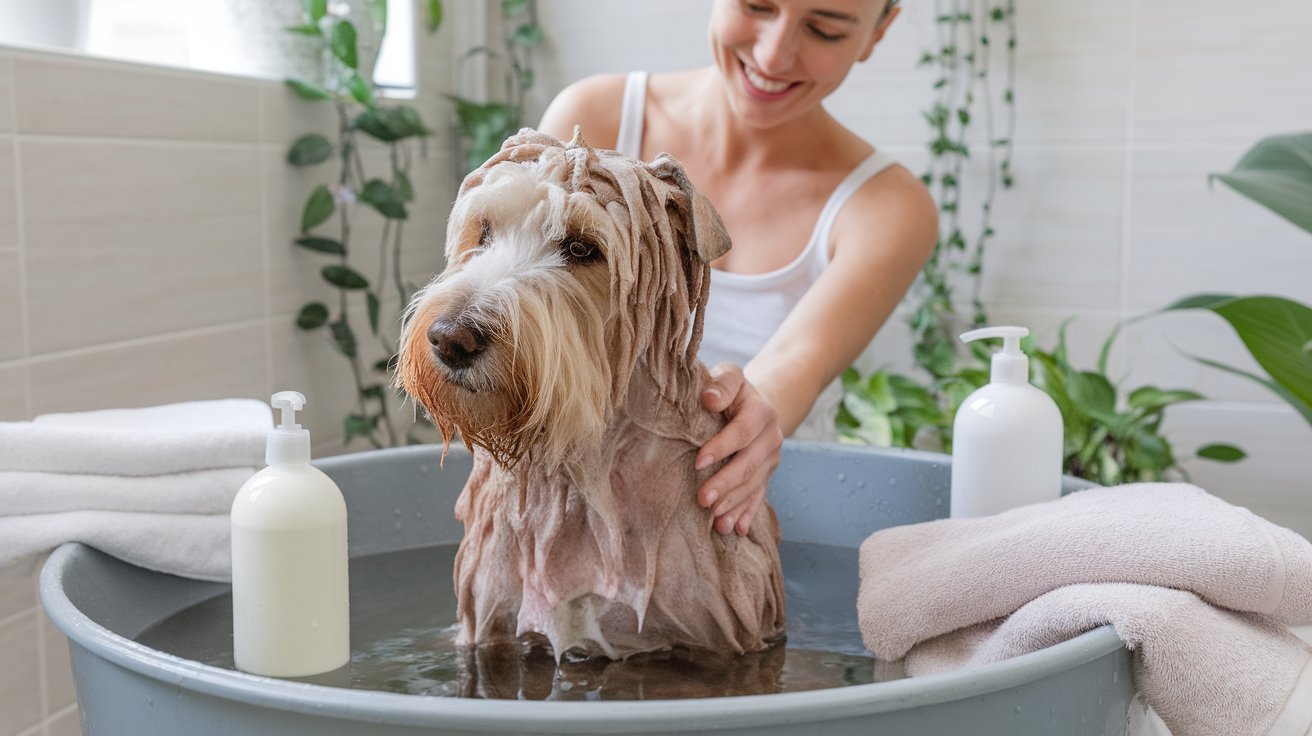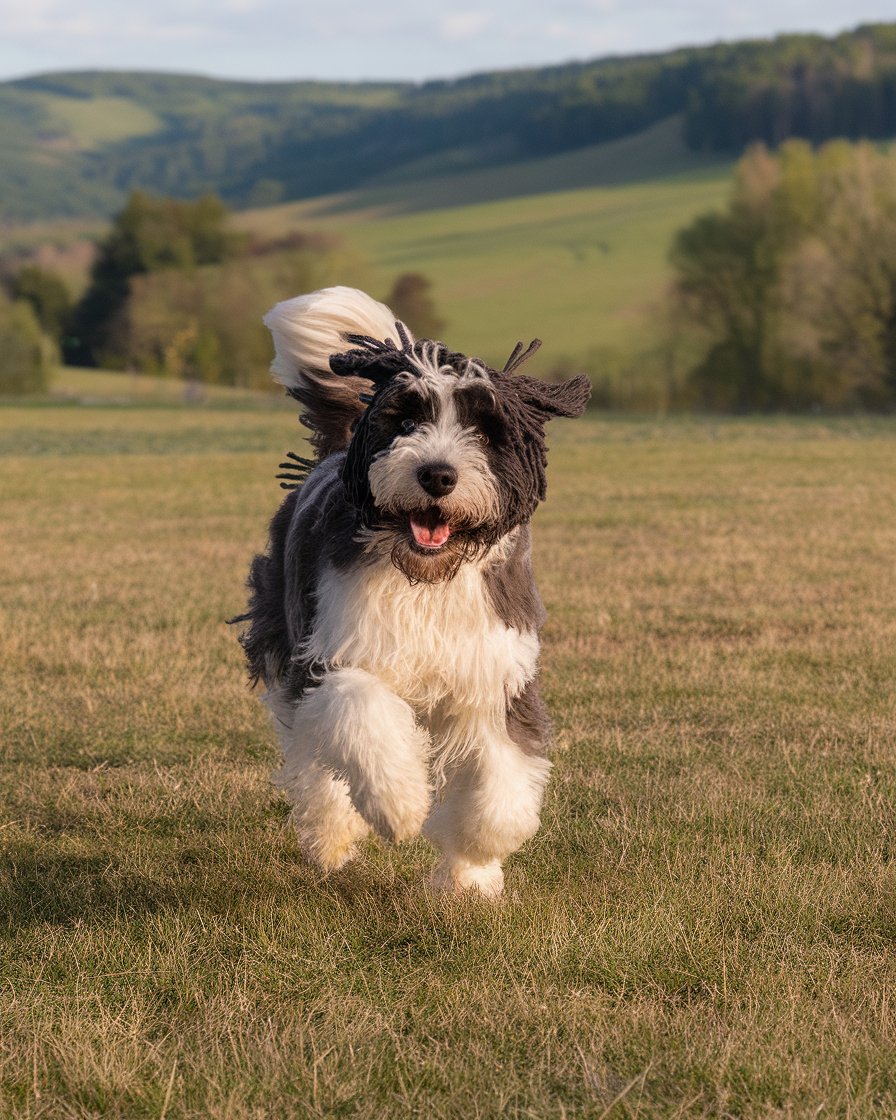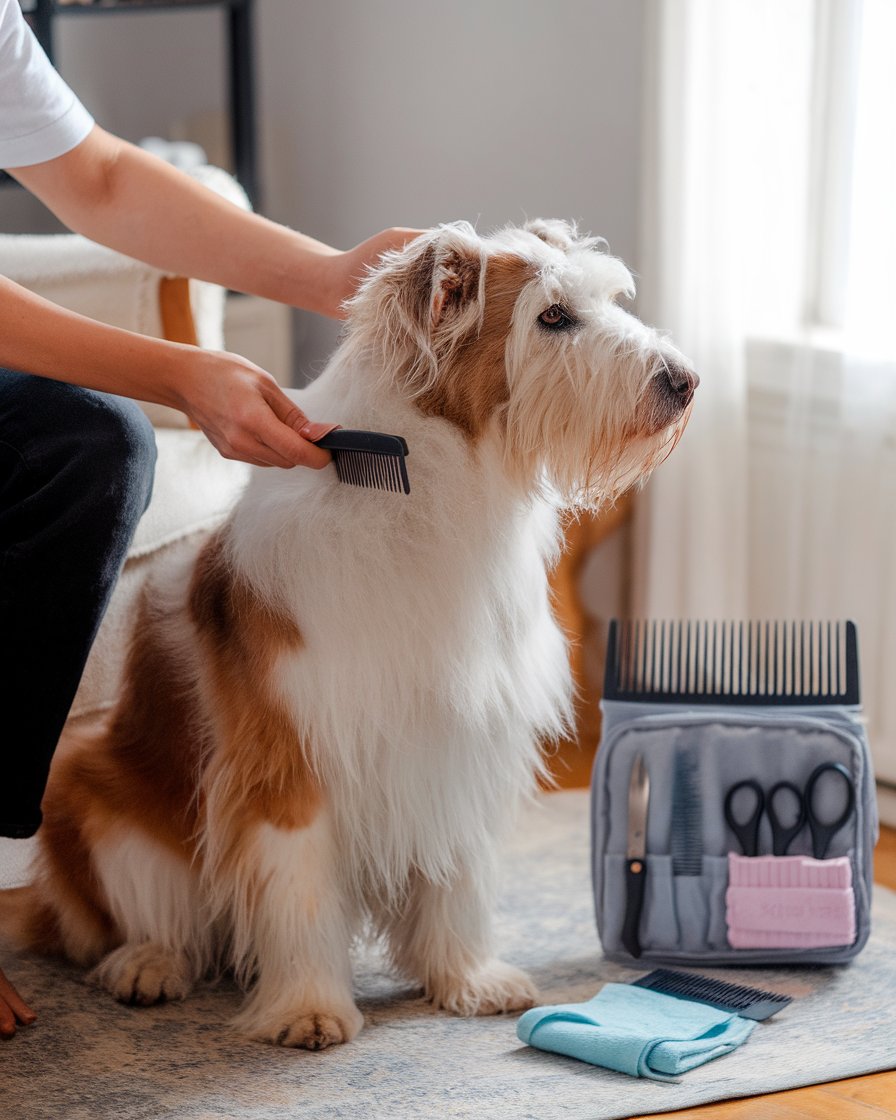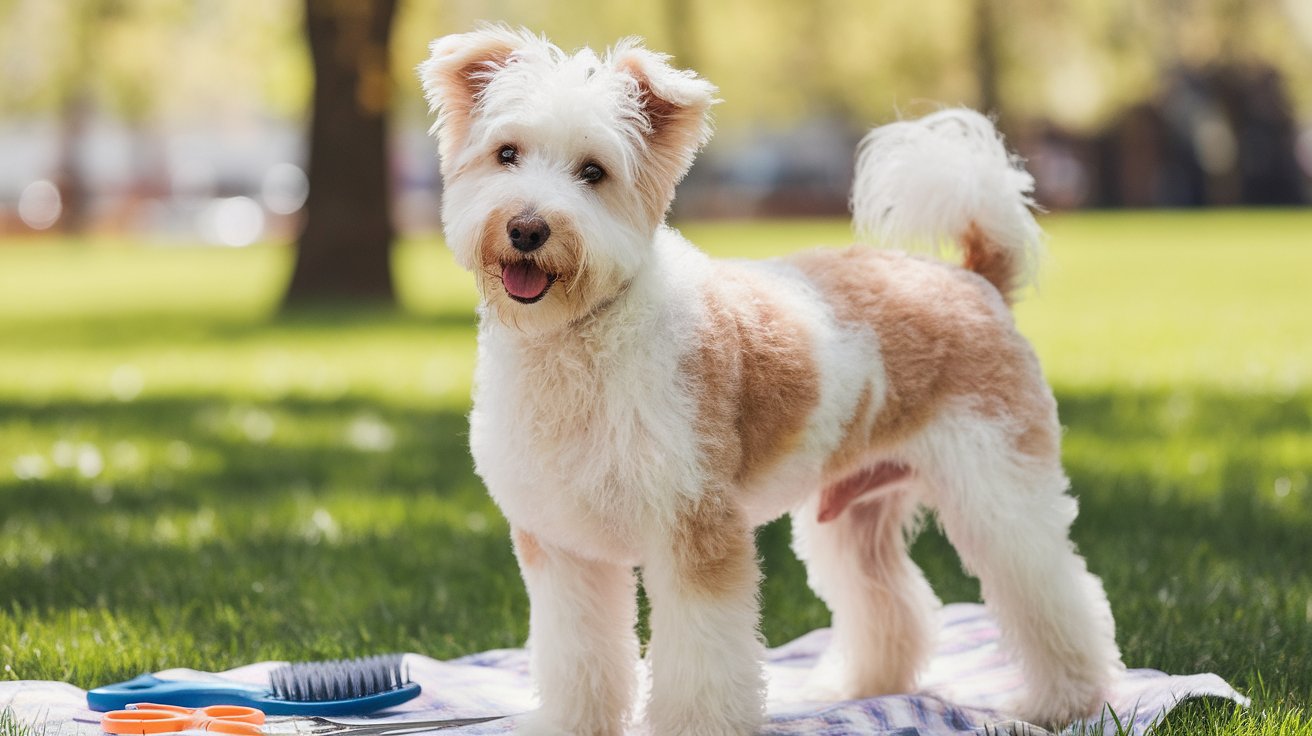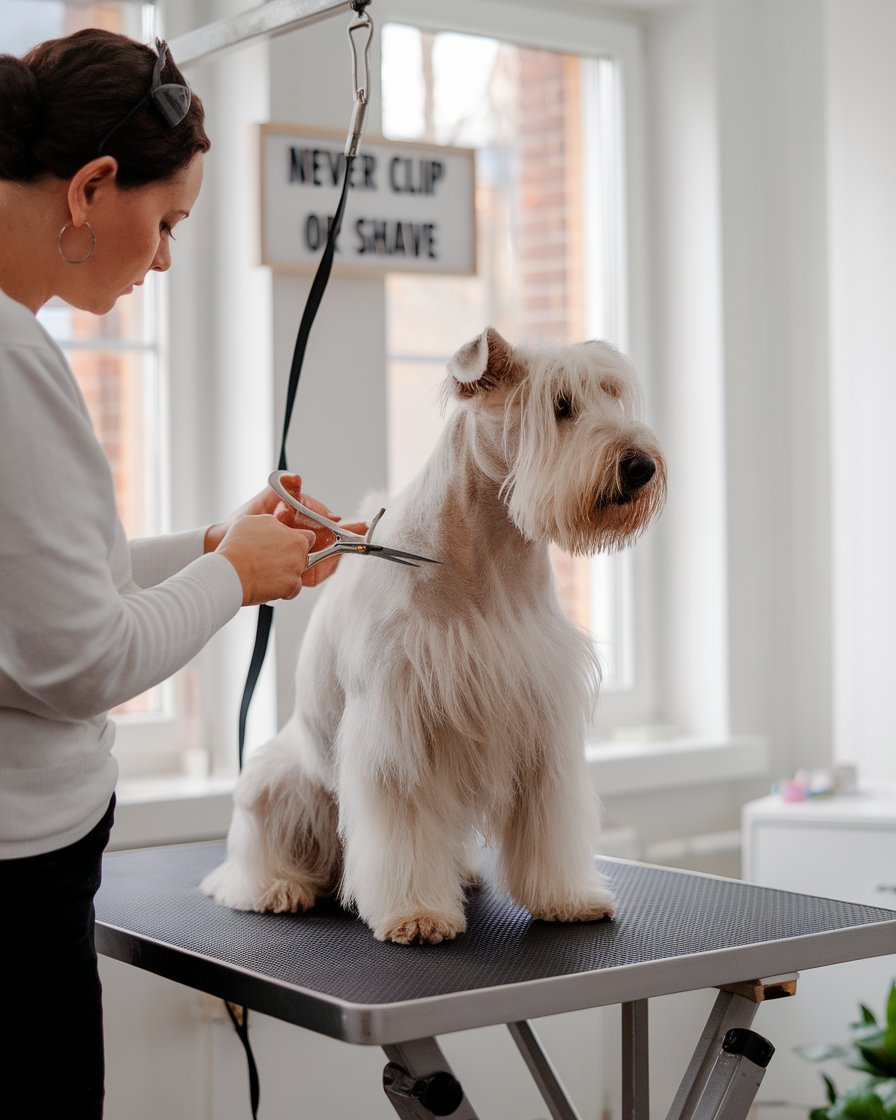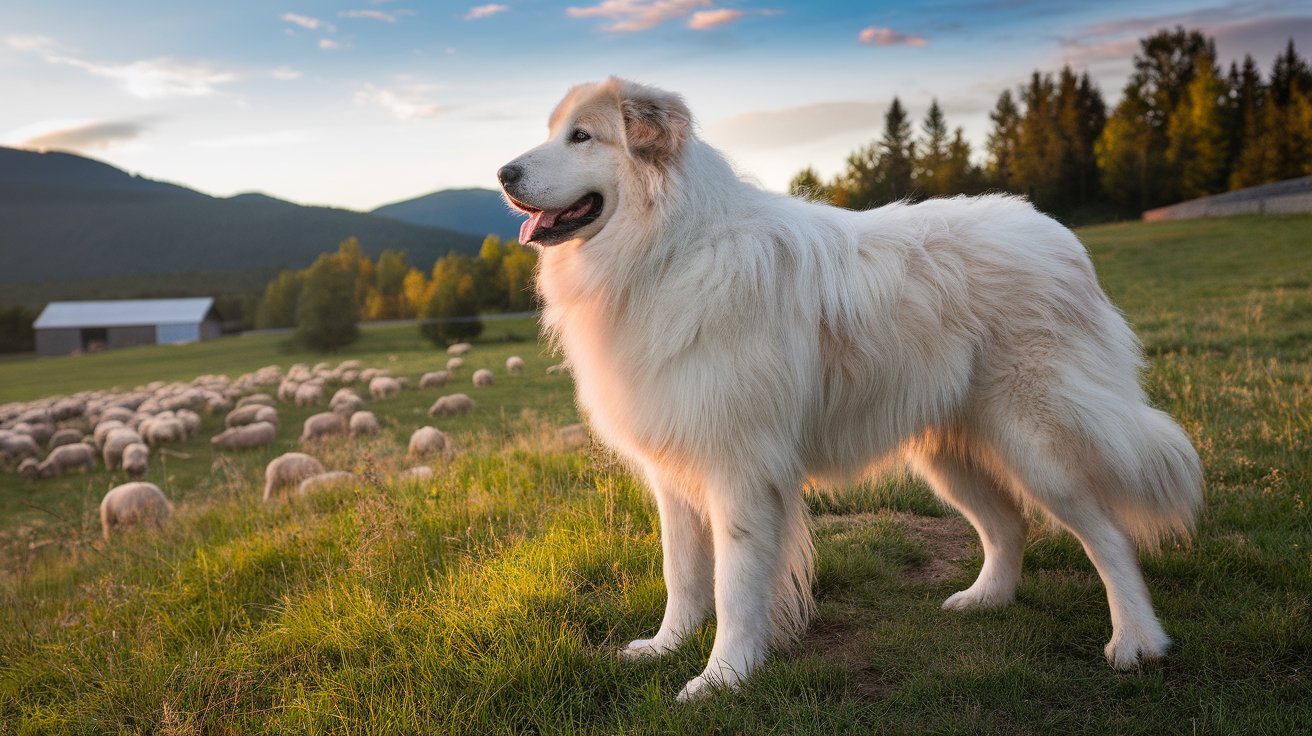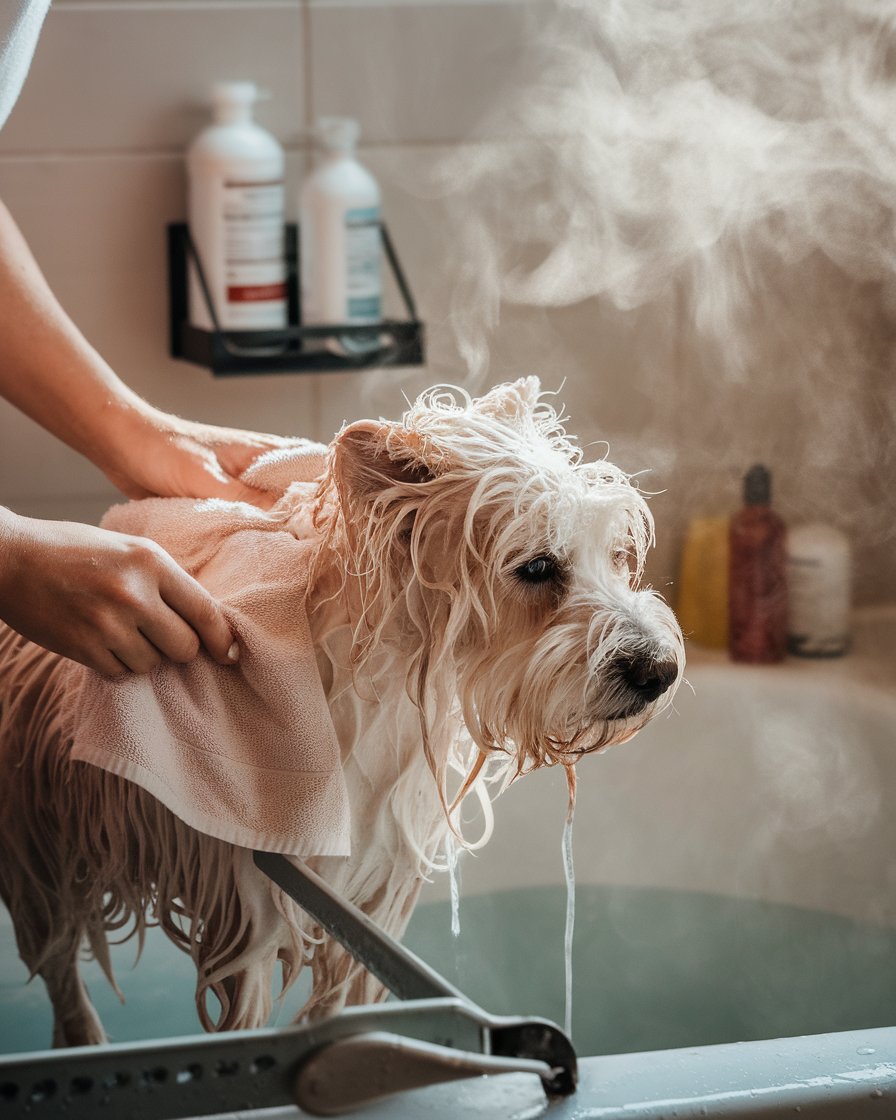Introduction
When it comes to caring for a Puli puppy, understanding their unique type of coat is essential. The Puli’s corded coat, which forms gradually over time, provides natural insulation and requires special attention from the start. Puli grooming is not just about aesthetics; it’s a critical part of maintaining their overall health. By regularly checking and grooming their coat, you can help prevent issues like matting and skin irritations. Early grooming also helps your puppy get used to the process, ensuring that they stay comfortable as they grow.
As part of regular puli coat care, it’s important to take things slowly and have patience. Gentle handling is key, especially when separating the cords that form in their coat. Using a mild shampoo to rinse the coat thoroughly can help keep it clean, while avoiding harsh products that could damage the top coat. Giving your Puli a reward after grooming sessions will make the experience positive, helping them cope with this routine long term.
Key Takeaways
- The Puli’s iconic corded coat requires careful grooming to maintain its natural insulation and prevent matting.
- Regular grooming, particularly with a monthly schedule, helps keep the Puli’s coat clean, healthy, and functional.
- For more active Pulis, frequent grooming may be necessary to manage dirt buildup and prevent matting in high-friction areas.
- Clipping or shaving a Puli’s coat should be avoided as it compromises its natural protective features and can lead to skin issues.
- Using gentle grooming techniques, such as separating cords and using mild shampoo, helps preserve the coat’s health and appearance.
- Preventing matting through regular grooming ensures proper airflow to the skin, reducing the risk of irritation and infections.
Quick Overview of the Puli Breed
The Puli breed is a unique and ancient dog originating from Hungary. Known for its iconic, corded coat, this medium-sized herding dog has long been treasured by shepherds for its intelligence and agility. The Puli’s strong work ethic and natural instincts make it an exceptional herding companion. Beyond their utility, these dogs are also beloved for their playful, energetic nature and loyal companionship. If you’re considering adopting a Puli, it’s important to understand their specific needs, particularly when it comes to grooming and care. Their distinct appearance is matched by their lively and affectionate personality, making them a popular choice for families who enjoy an active lifestyle.
How to Groom a Puli: Essential Hungarian Puli Coat Care
Understanding the Unique Structure of a Puli’s Coat The Puli’s coat is a complex structure of dense, corded fur that requires special attention. These cords form naturally over time and serve as insulation from both heat and cold. Proper care begins with recognizing how these cords develop and knowing when they need maintenance to prevent matting and ensure healthy skin beneath the coat.
Bathing a Puli: Techniques to Follow Regular bathing is necessary to keep the Puli’s cords clean, but it’s essential to use a mild, dog-friendly shampoo. To avoid damaging the cords, gently squeeze out excess water after rinsing without rubbing the fur. Bathing should be done every few weeks, depending on the dog’s activity level and environment, to avoid dirt buildup and skin irritation.
The Importance of Cord Separation As the cords form and grow longer, regular separation is crucial to prevent matting. High-friction areas, like the legs and tail, are particularly prone to tangling, so special attention should be paid to these spots. Using your fingers to gently pull apart the cords will ensure air circulates through the coat, which helps maintain healthy skin and reduces the risk of infections.
Drying the Coat Properly After a bath, it’s important to dry the Puli thoroughly to prevent moisture from getting trapped within the cords. Towels should be used to carefully squeeze out water, but using a blow dryer on a low setting may also help speed up the process. This step helps avoid mildew or skin problems caused by prolonged dampness.
Regular Grooming Sessions for Maintenance Regular grooming is key to maintaining the Puli’s coat. Scheduling grooming sessions every two to four weeks helps prevent mats from forming and keeps the cords clean. Even with a mild shampoo, make sure to check the dog’s undercoat for hidden dirt or skin irritations, which can lead to further complications if neglected.
When to Seek Professional Help Though regular at-home grooming is essential, professional groomers can offer expertise, especially when cords become difficult to manage. If your Puli’s coat has become too tangled or matted to handle at home, a groomer can carefully trim and maintain the cords without cutting them, preserving the natural appearance and health of the coat.
Historical Background of the Puli
The history of the Puli is rooted in ancient Hungary, where they were primarily used to herd sheep. These dogs, known for their intelligence and agility, were essential to the daily lives of shepherds. The Puli breed has survived for centuries, and their unique corded coat served as protection against harsh weather conditions. Over time, Pulis have earned a reputation for their working capabilities, but they are also celebrated for their loyalty and energetic personalities. This breed’s strong connection to Hungarian culture has made it a national symbol, cherished by dog lovers worldwide.
Characteristic Features of the Puli Coat
One of the most recognizable aspects of the Puli is its thick, corded coat, often likened to dreadlocks. This distinct coat doesn’t just give the dog a striking appearance, it serves as protection against harsh climates and environmental debris. Maintaining a Puli’s coat requires regular care and attention, including gentle grooming and the occasional bath. The cords must be separated regularly to prevent matting, while using a mild shampoo helps keep the skin clean and healthy. With proper care, the Puli’s coat can reflect the breed’s proud heritage and serve as a testament to the owner’s dedication to its well-being.
Importance of Proper Grooming for Pulis
Proper grooming for Pulis is essential to maintain their distinctive corded coat and overall health. This breed’s coat is naturally dense and long, requiring regular attention to avoid matting and dirt buildup. By grooming a Puli regularly, you help preserve the coat’s insulating properties, which protect the dog from both hot and cold temperatures. Grooming also promotes healthy skin by encouraging air circulation and removing debris. Without proper care, the cords can become tangled and matted, leading to skin issues and discomfort for your pet. Understanding the specific grooming needs of the Hungarian Puli ensures that your dog remains both comfortable and presentable.
Case Study: The Impact of Consistent Grooming on a Hungarian Puli
In 2019, a dog owner from Michigan shared their experience with their Hungarian Puli, named Juno, highlighting the importance of regular grooming. Initially, Juno’s coat became severely matted due to irregular grooming practices, leading to skin irritation and discomfort. After consulting a professional groomer, the owner established a bi-weekly grooming routine, which included proper cord separation, regular bathing with mild shampoo, and thorough drying.
Over time, the consistent grooming practice restored Juno’s coat, preventing matting and improving her overall health. The owner noticed that Juno’s energy levels increased, and her skin issues diminished as airflow to the skin improved. This case demonstrates how regular grooming not only preserves the Puli’s iconic coat but also enhances their comfort and well-being, preventing serious complications that could arise from neglect.
Role of Grooming in Coat Protection
Grooming plays a critical role in protecting the Puli’s coat, which acts as natural insulation from weather extremes. Regular bathing with a mild shampoo helps keep the coat clean while preserving its structure. After a bath, thoroughly drying the cords is vital, as moisture trapped inside can lead to skin irritation or infection. Towels can be used to gently squeeze out excess water, and a professional groomer may be necessary for more thorough drying. By maintaining a clean coat, the dog’s natural defenses stay intact, allowing them to thrive in various environments, from cold winters to hot summers.
Significance of Preventing Matting in Pulis
Matting is a common issue for Pulis, and it can significantly affect their comfort and health. When the cords become matted, airflow to the skin is restricted, which can cause painful irritation and even infections. To prevent this, regular grooming is essential, especially in areas prone to friction, such as the legs, tail, and sanitary regions. Special attention should be given to these areas by gently separating the cords and using a brush when necessary. A Puli’s coat may vary in length, so frequent grooming sessions help owners stay ahead of potential problems, ensuring their dog remains comfortable and free of matting.
Never Clip or Shave: Critical Grooming Do’s and Don’ts
For Puli dogs, proper grooming is essential, and one of the most important rules is never to clip or shave their coat. The Puli’s corded coat is more than just a unique feature; it provides insulation and protection from both hot and cold environments. Regular grooming helps maintain the coat’s health, but cutting it can compromise its functionality. By avoiding clipping or shaving, owners preserve the natural beauty and effectiveness of their Puli’s coat. Understanding the do’s and don’ts of grooming is key to ensuring your Puli remains healthy, comfortable, and well-protected throughout its life.
Consequences of Clipping or Shaving a Puli’s Coat
Clipping or shaving a Puli’s coat can lead to significant problems. The coat is vital for insulating the dog against temperature extremes, and once shaved, it may not grow back with the same corded texture. This loss not only affects the dog’s appearance but also weakens its natural defenses against cold, heat, and debris. Additionally, removing the coat’s protective layers can result in skin irritations or infections, causing unnecessary discomfort for your pet. Owners should avoid this drastic step and instead focus on proper grooming techniques that preserve the coat’s integrity while keeping the dog healthy.
Maintaining Natural Insulation Through Grooming
Proper grooming allows you to maintain your Puli’s natural insulation without resorting to cutting or shaving. Regular brushing and cleaning help prevent dirt buildup and matting, both of which can compromise the coat’s function. Use gentle massages during grooming to stimulate the skin and promote healthy coat growth. It’s also crucial to ensure the cords stay separated and clean. By dedicating time to these grooming routines, owners can keep the coat strong and resilient, allowing their Puli to thrive in various weather conditions. A well-maintained coat not only looks beautiful but also keeps the dog healthy and comfortable year-round.
“The greatness of a nation and its moral progress can be judged by the way its animals are treated.” – Mahatma Gandhi
Grooming Frequency for Pulis
The Puli’s unique corded coat requires a consistent grooming routine to keep it healthy and functional. Grooming frequency depends on factors like activity levels and environmental exposure. On average, a monthly grooming session works well for most Pulis, helping to maintain their distinct coat and preventing matting. However, more active Pulis or those frequently outdoors may need more frequent grooming to manage dirt and debris buildup. By adhering to an appropriate grooming schedule, Puli owners can ensure their dog stays comfortable, clean, and healthy throughout the year, while also preserving the integrity of their coat.
Monthly Grooming Schedule
A monthly grooming routine is often enough to keep a Puli’s coat in top condition. Regular grooming helps to untangle cords, remove debris, and check for any skin issues. A structured monthly session allows the coat to be thoroughly cleaned and maintained without causing excessive stress to the dog. In addition, a monthly bath with a mild shampoo, followed by a gentle massage to stimulate the skin, ensures that the coat remains healthy. Owners should pay special attention to trimming and tidying areas like the ears and undercoat, keeping them free of matting and dirt buildup.
Adjusting Grooming Frequency for Active Pulis
Active Pulis that spend a lot of time outdoors may require more frequent grooming sessions, potentially every two weeks. Outdoor adventures often lead to dirt and debris getting trapped in the cords, making regular grooming crucial to prevent matting. For these Pulis, a bi-weekly bath and coat care routine can keep them looking their best and feeling comfortable. In addition to basic grooming steps, it’s important to check high-friction areas like the tail and legs, as these spots are prone to tangling. A more frequent grooming routine will ensure that an active Puli stays clean, healthy, and mat-free.
Conclusion
Proper grooming is a vital part of keeping a Puli healthy and comfortable, especially as their unique corded coat requires consistent care. By adhering to a regular grooming schedule and using gentle techniques, such as separating cords and applying a mild shampoo, owners can help prevent matting and other coat-related issues. Whether your Puli is highly active or more sedentary, tailoring the grooming routine to suit their lifestyle will ensure their coat remains functional and resilient.
It’s important to remember that clipping or shaving your Puli’s coat should be avoided, as this can disrupt the natural insulation and protection the cords provide. Consulting with a vet is a good idea if you’re ever unsure about grooming tips or notice issues like excessive scratching or tearing of the coat. Taking time to understand the unique needs of this breed will go a long way in maintaining the Puli’s iconic appearance and overall health.

